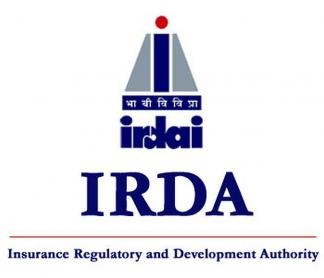In an era where digital transformation is reshaping industries, cybersecurity has emerged as a paramount concern, with an alarming rise in cyber threats. There was dialogue on urgency of strengthening Information Systems (IS) security, which emerged as a critical theme to safeguard against evolving risks,” said the IRDAI
Hyderabad: The eighth Bima Manthan, the quarterly meeting of IRDAI with the insurance industry held on 11th and 12th November 2024, in Hyderabad has focussed on the implementation of international Financial Reporting Standards IFRS(IFRS) otherwise known as Ind AS and strengthening Information Systems (IS) security in the Indian insurance industry.
In an era where digital transformation is reshaping industries, cybersecurity has emerged as a paramount concern, with an alarming rise in cyber threats. There was dialogue on urgency of strengthening Information Systems (IS) security, which emerged as a critical theme to safeguard against evolving risks,” said the IRDAI.
“Insurers, during these deliberations, exchanged views on the key risks facing the industry, including vulnerabilities in IT systems, third-party vendors, the security of cloud solutions, and the looming danger of AI-driven cyberattacks,” informed the IRDAI.
As reported by Asia Insurance Post earlier, discussions, during the Bima Manthan, delved deep into the industry’s readiness, implementation strategy, rollout plan, technology adoption in the key areas of Indian Risk-Based Capital (RBC) regime, Risk Based Supervisory Framework (RBSF) and the adoption of IFRS i.e. Ind AS.
There were detailed interactions on observations of the regulator and the experience sharing of the insurers on the findings of quantitative impact study (QIS) conducted to implement RBC, Gap assessment done by insurers as regards implementation of Ind AS and pilot studies carried out under RBS framework, added the IRDAI.
The observations from the RBC QIS I were thoroughly reviewed with a particular focus on what insurers can expect as the next phase unfolds. Recognizing the profound impact of Ind AS on financial reporting, discussions centred around gap assessments in critical areas. Key insights from the RBSF pilot study were discussed, shedding light on the industry’s readiness and the steps required for successful implementation.
These initiatives are not just regulatory shifts, but the very foundation upon which the future resilience and global competitiveness of the insurance industry will be built, observed the IRDAI.
As insurers collectively prepare for these monumental changes, the need for robust compliance, enhanced risk management, and unparalleled transparency
has never been more urgent — this is the industry’s defining moment to embrace
transformation and safeguard its future in an increasingly complex and dynamic global
landscape, emphasised the IRDAI.
Other areas during the discussion reflected upon during the interactions included performance of the Industry, possible areas of focus to enhance insurance penetration, important avenues for capital augmentation like listing of insurers in the revised regulatory environment.
This Manthan also had an important update on the status of Bima Sugam India Federation (BSIF) which enthused the industry.
“What was once a visionary concept has now become a tangible reality. A customer-centric innovation in the Indian insurance sector of setting up the BIMA SUGAM, a digital public infrastructure, it is poised to revolutionize the insurance landscape, providing citizens with the ability to easily access, transact, and, most importantly, enhance their overall insurance experience,” said the IRDA.
A collective commitment from the entire industry to ensure its successful implementation is set to reshape how insurers interact with consumers, setting a new standard of accessibility and transparency in the insurance business, stated the IRDAI.
The two day Bima Manthan showcased collective commitment and resolve of insurance
industry towards achieving the vision of Insurance for All by 2047.

